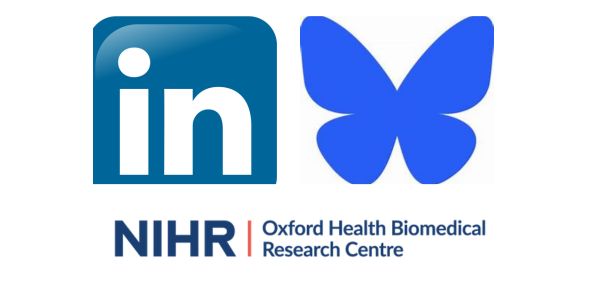Welcome to the bumper summer 2025 issue of the Oxford Health Biomedical Research Centre (OH BRC) newsletter which summarises all recently published news and updates in one place.
To feature in future editions from September onwards email Oxford Health R&D Comms
Our Research in the News
- Npj Vaccines:Lower risk of dementia with AS01-adjuvanted vaccination against shingles and respiratory syncytial virus infections | npj Vaccines
- National Geographic: The unexpected ways Ozempic like drugs might fight dementia
- BBC Scotland: Could ketamine on the NHS help treat severe depression?
- The Express: New study finds developing certain health conditions before 55 ‘doubles dementia risk
- Financial Times: Vaccines may offer double protection against dementia, study suggests
- New Scientist: Antidepressant withdrawal symptoms may be less common than we thought
- ITV: Parkinson’s drug could treat depression following promising Oxford trial

Parkinson’s drug effective in treating persistent depression (PAX-D)
Oxford researchers found that pramipexole, a Parkinson’s drug, significantly reduces symptoms of treatment-resistant depression when added to antidepressants. The year-long NIHR-supported trial showed sustained benefits, despite some side effects. Led by Professor Michael Browning, the study offers hope for patients unresponsive to current treatments and highlights the need for further research. (Featured on ITV Meridian)
Read more: OH BRC news
Call for improved collaboration in mental health inflammation studies
A new review, led by University of Oxford’s Department of Psychiatry Professor Rachel Upthegrove, Director of OH BRC, explores how inflammation in the body may contribute to mental health conditions such as psychosis, depression and autism, and what this could mean for future clinical trials. The review was completed by researchers in our OH BRC Molecular Targets Theme.
Read more: OH BRC News


Chilean families to benefit from Oxford developed support for child Anxiety
Professor Cathy Creswell, OH BRC Theme Lead for Mental Health in Development, recently visited Chile to lead a new collaboration adapting Oxford’s evidence-based child anxiety programme, OSI, for local families. Developed with support from our BRC and ARC OxTV, OSI empowers parents to support children aged 5–12 experiencing anxiety. Backed by the Inter-American Development Bank, this marks a major step in translating Oxford research into global impact.
Read more: OH BRC news
Join the first Oxford Health BRC Neurodiversity Conference
This two-day public event on Friday 19 September and Saturday 20 September across two locations will bring together researchers, clinicians, local organisations, and the neurodivergent community to collaborate and drive meaningful change.
Read more: OH BRC Events
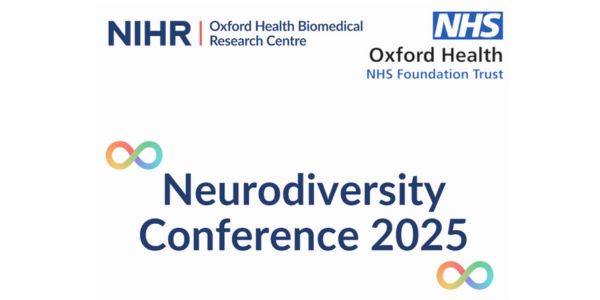
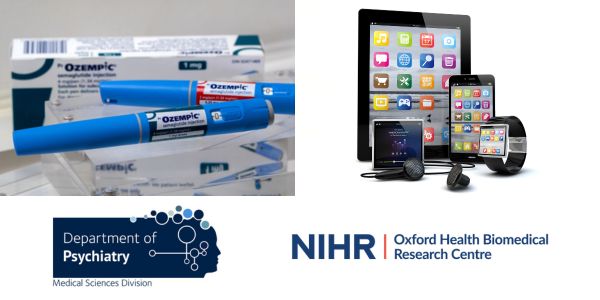
Mental Health Reimagined: Wearable Tech and Weight-Loss Drugs Offer New Hope
Recently, Oxford-led studies supported by our BRC spotlight innovation in mental health. GLP-1 drugs show promise for cognitive decline, as featured in National Geographic by Dr Riccardo De Giorgi. Separately, Dr Alvaro Barrera’s team found psychiatric inpatients receptive to wearable tech devices as part of research into their attitudes toward digital tools in psychiatric care. Both studies highlight patient-informed, tech-enabled approaches to future psychiatric care.
Read more: OH BRC news
Join the next South Asian Engagement event
The next Oxford South Asian Engagement Programme Event is planned for Wednesday 23 July, from 10.30am to 12.30pm at Rose Hill Community Centre, Carole’s Way, Oxford. Research and Development staff who would like to engage with the community or have studies they would like to promote or are invited to attend.
Read more: OH BRC Events


Early Intervention Mission Begins Recruitment
Oxford Health is among the first sites to recruit for the Early Intervention Mission, a UK-wide study aiming to improve early detection and personalised care for psychosis. Led by Professor Graham Murray and supported by the NIHR MH-TRC, the study will follow 2,000 participants over three years. It combines biological samples, clinical data, and lived experience to inform future treatments and research.
Read more: OH BRC news
That's a wrap! Spring term round-up OH BRC Training
The OH BRC Training Programme delivered a successful Spring Term, offering sessions on neurodiversity, machine learning, project management, influencing, inclusive research, and social media. The programme saw widespread engagement and positive feedback from researchers across disciplines. Planning is underway for the Autumn Term, launching in September.
Read more: OH BRC news

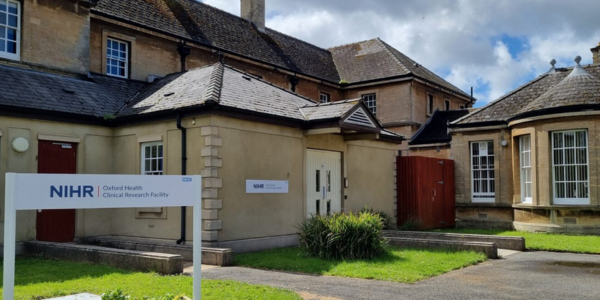
Oxford Health is supporting the NIHR BioResource in England
Oxford Health Clinical Research Facility, in partnership with the University of Oxford, is one of 18 centres supporting the NIHR BioResource—a national panel of over 300,000 volunteers aiding health research. Led by Professor Philip McGuire, the Oxford Health BioResource focuses on mental health, aiming to improve representation in research. Volunteers provide a sample and health data, enabling tailored study invitations.
Read more: OH CRF News
NIHR Senior Investigator applications now open
The NIHR Senior Investigator award recognises the most prominent and prestigious researchers of applied health and social care. Senior Investigators help shape the direction of health, social care and public health research in the UK. The NIHR welcomes applications from senior researchers in applied health and social care professions, particularly those from underrepresented professions and all institutions to reflect the growing diversity of health and care research leadership.
Read more: NIHR Website
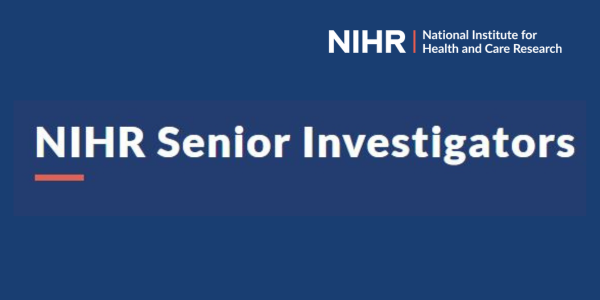

Certain chronic health conditions associated with increased risk of dementia – new study
A new Department of Psychiatry study, supported by our BRC, has found that developing cardiovascular, neurological, or mental health conditions before age 70 significantly increases the risk of dementia, especially when multiple conditions accumulate. Using UK Biobank data from over 282,000 people, researchers identified critical time windows: cardiometabolic conditions before 55 and mental or neurovascular disorders between 55–70 posed the highest risks. Senior author Associate Professor Sana Suri said the findings could inform targeted prevention strategies and highlight the importance of managing chronic illnesses earlier in life to reduce dementia risk.
Read more: DoP News

Recruitment opens for UK-wide liver cancer imaging study
A new UK-wide study, AMULET, led by the University of Oxford, is testing a shorter, non-contrast MRI technique against standard ultrasound to improve early liver cancer detection in people with cirrhosis. Funded by a £2.2 million NIHR grant, the study involves over 30 NHS sites and a multidisciplinary team from Oxford, Nottingham, Bournemouth, and Glasgow Caledonian universities. Recruitment has begun at four sites, with plans to expand into high-need areas. Led by Professor Michael Pavlides, the study could offer a more sensitive, less invasive alternative to current surveillance methods, potentially improving outcomes for at-risk patients.
Read more: Oxford BRC News
Stay Connected with OH BRC This Summer
Keep up with Oxford Health BRC over the summer on BlueSky and Linked In. We’ll be sharing research news, training updates, and highlights from across our BRC. Whether you’re working, or taking a break, it’s a great way to stay in the loop .
Follow us, tag us, and share what you’re up to—we’d love to hear from you!
